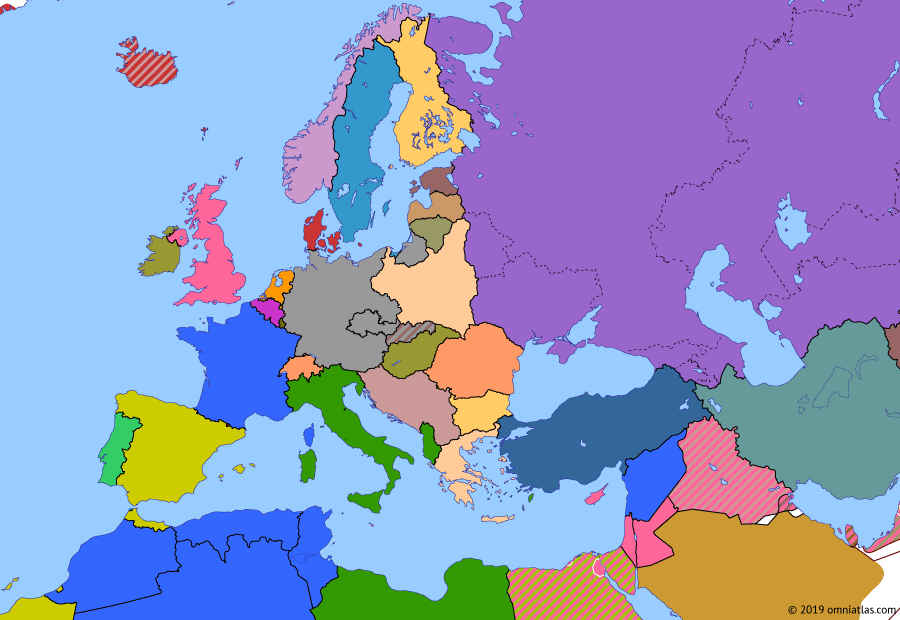Europe 1939: Molotov–Ribbentrop Pact

23 August 1939
23 Aug 1939
Rise of Fascism
-27–68 Julio-Claudian Dynasty
68–96 Flavian Dynasty
96–192 Nerva–Antonine Dynasty
192–235 Severan Dynasty
235–268 Crisis of the Third Century: Turmoil
268–284 Crisis of the Third Century: Restoration
284–311 Diocletian and the Tetrarchy
311–363 Constantinian Dynasty
363–383 Valentinianic Dynasty
383–408 Theodosian Dynasty: Divided Empire
408–425 Theodosian Dynasty: The West Besieged
425–441 Theodosian Dynasty: Fall of Africa
441–457 Theodosian Dynasty: Hunnic Wars
457–1803 NO MAPS FOR THIS PERIOD YET
1803–1814 Napoleonic Wars
1814–1815 Vienna and Waterloo
1815–1848 Congress Europe
1848–1850 Springtime of Peoples
1850–1859 Crimean War
1859–1862 Italian Unification
1862–1871 German Unification
1871–1914 Imperial Europe
1914–1918 Great War
1918–1922 Armistice Europe
1922–1939 Rise of Fascism
1939–1942 World War II: Blitzkrieg
1942–1945 World War II: Fall of the Third Reich
1945–1990 Cold War
1990–2010 Post-Cold War Europe
2010–pres Crisis of Europe
Molotov–Ribbentrop Pact
28 Oct 1922 Mussolini's March on Rome
8 Nov 1923 Beer Hall Putsch
1 Dec 1925 Locarno Conference
30 Jan 1933 Hitler Gains Power
7 Mar 1936 Remilitarization of the Rhineland
20 Jul 1936 Outbreak of the Spanish Civil War
13 Mar 1938 Anschluss
2 Nov 1938 Appeasement at Munich
15 Mar 1939 End of Czechoslovakia
23 Aug 1939 Molotov–Ribbentrop Pact
In August 1939 Germany surprised the world by signing the Molotov–Ribbentrop_Pact with the Soviet Union. Formally, this was a non-aggression pact between two ideological enemies. However a secret clause agreed to the division of eastern Europe, in particular Poland.